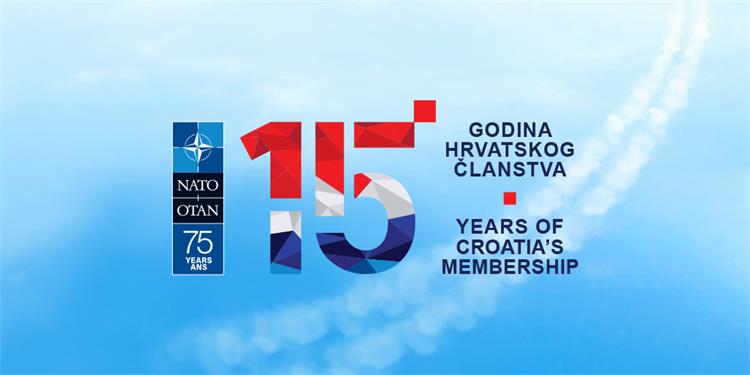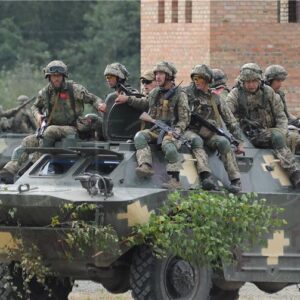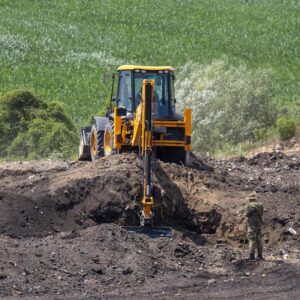April 2024 marked Croatia’s 15th anniversary of becoming a member state of NATO.
After the membership invitation in April 2008 at the NATO Summit in Bucharest and brief accession negotiations, the accession protocol was signed in Brussels on July 9, 2008, which was subsequently ratified in the parliaments of the member states. National ratification instruments were deposited at the US Department of State, the depository of the North Atlantic Treaty. Croatia became a NATO member state by depositing its ratification document on April 1, 2009. As a member state, it participated in the NATO Summit on April 3 and 4, 2009, in Strasbourg and Kehl. The Croatian flag was raised in front of NATO headquarters in Brussels on April 7, 2009.
“Through its membership in the Alliance over the past 15 years, Croatia has strengthened its international position in terms of security, political, economic, and geopolitical aspects. As a Central European, Danubian, Adriatic, and Mediterranean country, Croatia, with its geo-strategic position, represents an important link between these European regions. Croatia actively participates in shaping Alliance policies and the NATO collective decision-making system, whose unanimous decisions reflect Croatian national positions, priorities, and interests. Through significant contributions to NATO missions and operations, as well as participation in strengthening deterrence and defence on the eastern flank of NATO, Croatia invests in its own security, demonstrates solidarity, fulfils its international obligations in crisis stabilisation, transfers previously acquired knowledge – especially those gained in the Homeland War – and develops capabilities of its armed forces with technologically advanced, innovative solutions, and strengthens its own defence industry,” says a Croatian Foreign and European Affairs Ministry Press Release dated 1 April 2024 from.
And so, the President of the Republic Zoran Milanovic attended on Tuesday 9 July 2024 in Washington, together with all the heads of state and government of NATO member states, the celebratory event of the 75 years of NATO, which also launched the Alliance’s annual summit. The celebratory event held in the Andrew W. Mellon Auditorium, Washington DC, was used to recall the reasons and history of the founding of NATO, as well as the role of the Alliance today, which was discussed at the celebratory event by the President of the USA Joe Biden and NATO Secretary General Jens Stoltenberg. Accompanying Croatian President Zoran Milanovic at the celebratory event marking the 75th anniversary of NATO were Croatian Deputy Prime Minister and Defence Minister Ivan Anusic, Minister of Foreign and European Affairs Gordan Grlic Radman, Speaker of Croatian Parliament Gordan Jandrokovic were also present at the summit in Washington.
Overall, the 2024 NATO summit concluded in Washington on Thursday 11 July 2024 with a loud call to member states, and I guess the entire “Western” world if not wider, for greater efforts to protect Ukraine. Kyiv is on an “irreversible” path to membership, the NATO bloc formally declared on Wednesday, 10 July 2024; the path that will reportedly kick off once its war with Russia ends.
In the interim, NATO announced a series of steps aimed at bolstering Ukraine’s defences. The NATO alliance said it would provide at least US$43 billion in military aid to Kyiv within the next year, but it stopped short of an ongoing, multiyear, commitment that NATO Secretary-General Jens Stoltenberg advocated for. Croatian defence minister Anusic said that in line with its economic position Croatia would participate in that sum with 66.6 million euro (US$72.7 million). Given that Croatia is a relatively small country with humble financial power this contribution appears impressive.
“Powerful and strong messages were sent from the NATO summit, there will not be a millimetre of deviation, we are strengthening our cohesion within the Alliance both through action and through allocations and according to our defence potentials and through the Pledge for Ukraine. Security and freedom are not free, we felt that firsthand in the Homeland War and we must always be ready. Not to attack, but to deter, to be strong so that no one could threaten our territorial integrity,” said Minister Anusic for the Croatian media this week.
Despite efforts to counter Russia’s military influence, though, NATO reiterated in NATO’s Washington Summit Declaration Press Release from 10 July 2024 that it “does not seek confrontation, and poses no threat to Russia,” adding that the alliance remains willing to “maintain channels of communication with Moscow to mitigate risk and prevent escalation.”
Russia was not the only focus of NATO’s evident anger and fury during the past week at the summit. South Korean President Yoon Suk-yeol argued that the Kremlin’s close ties with North Korea are a “stark reminder of the fact that the European security and the Indo-Pacific security are indivisible.” And on Wednesday 10 July 2024, the NATO alliance criticised China for being a “decisive enabler” of Moscow’s war against Ukraine, demanding that Beijing cease all shipments of weapons components and other technological parts that are critical for Russia to rebuild its military.
China’s “no limits” partnership with Russia and its “large-scale support for Russia’s defence industrial base” are enabling Moscow to wage its war, the NATO leaders’ statement said, as they urged Beijing to “cease all material and political support to Russia’s war effort.” This joint declaration marks NATO’s most pointed tone yet on China’s role in a war that has galvanised the 75-year-old NATO bloc.
In their final summit statement, the NATO allies said Russia’s invasion of Ukraine more than two years ago had “shattered peace and stability in the Euro-Atlantic area and gravely undermined global security.”
Declaring that Russia “remains the most significant and direct threat to Allies’ security,” NATO allies took steps to ensure Ukraine prevails against the invader.
NATO Summit 2024 hence appears to be a landmark summit in more ways than one. Not only did it solidify and cement the alliance itself, but it clearly demonstrated its intention to make good on its promise to help defend a country that is not a member of NATO – Ukraine and has been suffering enormously from military aggression against it during the past two years. It would appear the alliance is building up determination and policy seen prior to the two World Wars of 20th century. This leads one conclude that United Nations organisation or its Security Council has not done its job of securing world peace and peaceful cohabitation on Earth.
Much of what NATO can do for Ukraine, and indeed for global security, is misunderstood. Often the alliance is thought of as the sum of all U.S. relations with its European partners, from imposing sanctions and other costs on Russia to sending arms and ammunition. But as an organisation, its brief is limited to the defence by military means of its 32 member countries – the sacred Three Musketeers-like vow of all for one, one for all — and a commitment to help keep the peace in Europe and North America. That also means not being dragged into a wider war with nuclear-armed Russia and, indeed its apparent allies such as China and Iran.
The NATO Summit 2024 conclusions and deliberations thus blow among us a whiff of history that has a bitter taste and foul smell. Perhaps in line with the former UK Defence Secretary Grant Shapp’s suggestion from January 2024 that the West was “moving from a post-war to pre-war world”, meaning world conflict could break out in the not-so-distant future.
Through NATO, Croatia is set to continue to work on preserving and strengthening its own security and the stability of the European continent in a broader sense, especially Southeastern Europe where its relevance is perhaps the highest because a great deal of its state border is with Serbia and Bosnia and Herzegovina. Serbia is pro-Russia and has no obvious desire or plan to join NATO, which also means it is both a physical and political stepping stone for Russia to access central Europe. Bosnia and Herzegovina (BiH) does have an action plan in place for joining NATO but pondering on how that plan will pan out with the Serbian Republic part of BiH vying to split from BiH and join Serbia brings a great deal of concern and worry. Given that USA is currently doing most of the heavy lifting for NATO putting into practice its resolutions and conclusions from the 2024 Summit one may safely conclude that the results of US Presidential elections in November will have an enormous impact on either the unraveling or the tightening of the geopolitical crisis currently afoot in which Croatia is enveloped as well, merely by being a NATO member state. Ina Vukic




